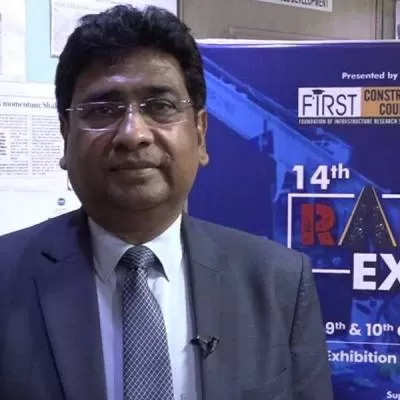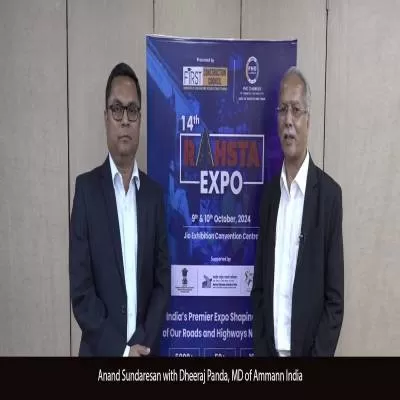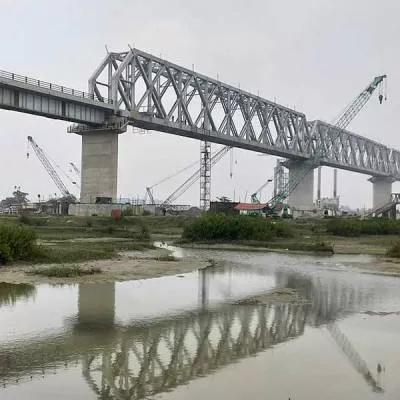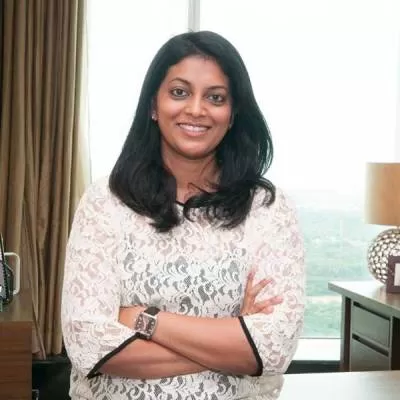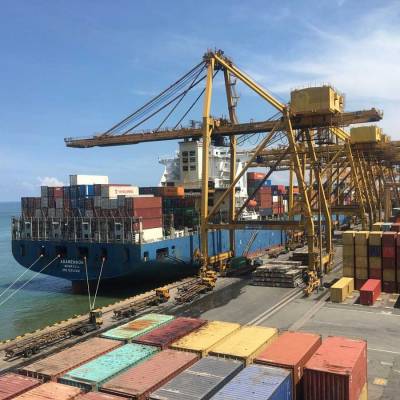- Home
- Infrastructure Transport
- PORTS & SHIPPING
- Mission Possible
Mission Possible
As part of a series of interviews with prominent civil engineers, Janaki Krishnamoorthi meets Col Rajbir Malik (retd), Chief Corporate Officer, Ackruti City Ltd, Mumbai.
Impossible is nothing. That, in a nutshell, is the mantra of Col (retd) Rajbir Malik, Chief Corporate Officer, Ackruti City Ltd. “After having handled several difficult projects under very demanding situations in the Army, I find nothing challenging now,” he declares. In his 24-year stint with the Corps of Engineers, the technical combat wing of the Indian Army, he had to apply his engineering skills in deserts, hilly terrain, snowbound areas, land rigged with mines, and the Bangladesh War. He has built roads in virgin, snow-filled Himalayan stretches, created floating bridges across rivers overnight, built rail tracks in forward areas of Jammu & Kashmir and erected ditch-cum-bunds (DCBs) to deny access to enemy forces.
“DCBs are deep trenches where water is brought in by gravity from higher levels,” he explains. “During the 1971 Bangladesh War, we used them to prevent enemy tanks from entering Indian territory. Special design, maximum prefabrication and manual construction were the hallmarks of this project executed in a very short time.” In projects such as these, there is absolutely no room for refusal, error or delay. “During such operations, we cannot say we do not have the required material or time,” says Col Malik. “We have to improvise, use whatever is available and get the work done at any cost. We are trained to handle any situation.”
Col Malik learnt how to battle adversity very early in life. Born in a peasant family in Lisarh village (Muzaffarnagar district) in Uttar Pradesh, he studied in a village school; sitting under a tree on a gunny bag that he would bring everyday from home. He had to study using kerosene lamps, as the village had no electricity, and walk or cycle for miles as there was no road connectivity. These experiences have evidently held him in good stead. “Even today, at the age of 66, I can climb to any height without difficulty,” beams Col Malik, who has also handled a variety of regular projects ranging from air fields for the Air Force, air traffic control towers and hospitals, to residential and commercial complexes in Mumbai, Rajasthan, Kashmir and the Northeast.
Col Malik joined Ackruti City in 1991 and was its chief operating officer until 2010, looking after engineering functions like planning, purchasing, contracting, supervising projects and handling techno-legal issues. Now, as chief corporate officer, his responsibilities encompass business development, implementation of work systems, human resources development and quality audits. At Ackruti, he has handled several residential and commercial projects including IT parks, slum redevelopment and housing for project-affected persons (PAPs). In Col Malik’s opinion, to maintain quality and avoid delay, a project should be conceived properly, planned accurately and executed methodically. He shares his experiences, views and thoughts.
Work philosophy
In the Army, I chose civil engineering where we follow the work ethics and codes laid down for us. Engineers play a varied and vital role in the Army. They are responsible for the design, construction and maintenance of all buildings, airfields, roads, dock installations, etc, for the Army, Navy, Air Force and other defence departments. During war and other combat operations, they provide mobility to the armed forces through air, land and water by constructing roads, bridges, tracks and helipads; by removing road blocks; and by detecting and destroying landmines.
Now, as a corporate engineer, I always keep my employer in mind while planning or building anything, more so while building houses. And my employer is not Ackruti; while it is no doubt the medium, my actual employer is the buyer who will be living in the flat. So, I keep him in mind when I do my work. If I can apply my knowledge and enhance the quality or life of the building without spending more money or resources, I will do it. I believe a house purchased by a person should last for the next generation too. In other words, it should be there for at least 100 years without requiring any major repairs.
Lack of professional status for engineering
A large chunk of our country’s budget, running into crores, is being used to create more assets or to maintain existing ones. And it is the engineers – from various streams – that are creating and maintaining these assets. As per an act in the Parliament, each professional must undergo apprenticeship for a certain period; as engineers do not undergo any such training, engineering is not recognised as a profession. No engineering college, including the IITs, has internships for engineers. All other professionals have a training period; a lawyer cannot practise unless he is a member of the Bar, a doctor cannot practise unless he is registered with the Medical Council of India (MCI), an architect cannot practise unless he is registered with the Council of Architecture. But, there is no such statutory body for engineers to regulate the profession. So, anyone, after acquiring a degree or diploma, can start working as an engineer, and there is nobody to penalise or disqualify them for any lapse or misconduct. This issue has been taken up with the government by various bodies but to no avail.
Need for practical training
We produce lakhs of engineers with theoretical knowledge, but if they are provided with practical training, the output will be better. Engineering colleges must introduce at least a one-year compulsory internship before they award the degree.
There is a rule that all construction companies must employ 10 per cent freshers; everybody does it. There is no systematic training given, and the freshers learn on their own on site. Often, these junior-most people are the ones supervising work on site, which can prove to be dangerous!
Track record: Col (retd) Rajbir Singh Malik
• BE (Civil) from College of Military Engineering, Pune (1973-77)
• Specialisations: Earth Moving Plant Course (Army & BEML Ltd, Bengaluru); Middle Management Course (Infantry School, Mhow); Computer Applications (Army)
• After training at Officers Training Academy, Chennai, in 1967 commissioned in Indian Army, Corps of Engineers, Technical Combat Wing
• After specialised Field Engineering Course at College of Military Engineering, posted to engineer regiment involved in constructing roads and tracks in forward area of J&K.
• In 1971, was part of Bangladesh war regiment.
• Served as Garrison Engineer (Executive Engineer) providing works and operations support to an operational Air Force Station in Jorhat (1982-84).
• In Mumbai, as Staff Officer Grade -1 (planning), worked for several defence organisations, and was responsible for planning, budgeting and monitoring important, multifaceted engineering projects.
• Retired from Army in 1990-91
• Joined Ackruti City Ltd in 1991 and was its Chief Operating Officer until 2010. Currently holding the post of Chief Corporate Officer.
Challenging projects:
Project: ROAD ON A HILL
Location: Uri, Srinagar, near India-Pakistan border
Period: 1967-1968
Background: Heavy artillery guns had to be towed to the top of a 10,000-ft-high hill to combat the enemy camp located on the other side of the hill. So, a winding road had to be built from the bottom of the hill to the top. Work had to be carried out over a period of 10 months, halting when there was heavy snowfall. “Building a road on a hill is a very tedious job,” says Col Malik. “We had to first make a track to enable trained army mules to carry equipment, including parts of a bulldozer, to the top where they were then reassembled. Then, we started working downwards by cutting the hill. We were around 150 men on the job running up and down the hill on various tasks!”
Challenges: To clear the area after every snowfall, remove the mud that would frequently slide down from the top, and block the road and carry on the building work. The most difficult task was to keep the enemy in the dark about the operation. “We had to do the blasting at night or early morning so the dust emanating from the blast would not be visible to the enemy,” Col Malik recalls. “Of course, they could hear the noise but could not make out where it was coming from, whereas dust would have clearly revealed the location. We managed to complete the road successfully.”
Project: HOUSING FOR PAPs (PROJECT AFFECTED PERSON)
Location: Tatanagar, Mankhurd
Period: 2007-2010
Developer: Ackruti City Ltd
Background: A project for housing 4,080 PAP families was sanctioned by MMRDA in 2007. Spread across 62,071.30 sq m, it encompassed 40 buildings each with ground plus seven floors. The land had a utensil factory that had to be dismantled, and the project had to be completed within 30 months. “The short project time forced us to start the construction of 20 buildings simultaneously,” reveals Col Malik. “We employed 10 contractors who began work on 20 buildings; the balance 20 were taken up on completion of the first batch.”
Challenges: Material procurement plan and physical movement of building material required pre-planning as each item was required in bulk and had to be of similar quality, colour and finish. The physical movement of all construction material was another challenge as the approach was through a narrow, congested lane passing through a slum area. Vehicles/trailers carrying reinforcement steel posed another kind of problem, more so, considering the volume of the materials. “After studying the situation, material receipt was organised at night for reinforcement steel,” says Col Malik. “Physical unloading of each vehicle of each contractor was scheduled and monitored. We parked material carrying vehicles along the main road in safe pockets that were then moved under specific instructions. Vehicle bypasses were located and cleared in narrow lanes. Owing to meticulous planning, the entire operation was carried out with no disturbance to locals and with no mishap at all.”
Give us your feedback on this article at feedback@ASAPPmedia.com
- Construction
- Update
- Portal
- Magazine
- CW-India
- April
- 2011
- India
- Col (retd) Rajbir Malik
- Ackruti City Ltd
- Indian Army
- Corps of Engineers
- Bangladesh War
- Uttar Pradesh
- Mumbai
- Rajasthan
- PAPs
- internship
- Medical Council of India
- taining
- Garrison Engineer
- Road
- India-Pakistan border
- PAPs
- Tatanagar
- Mankhurd
- MMRDA
As part of a series of interviews with prominent civil engineers, Janaki Krishnamoorthi meets Col Rajbir Malik (retd), Chief Corporate Officer, Ackruti City Ltd, Mumbai. Impossible is nothing. That, in a nutshell, is the mantra of Col (retd) Rajbir Malik, Chief Corporate Officer, Ackruti City Ltd. “After having handled several difficult projects under very demanding situations in the Army, I find nothing challenging now,” he declares. In his 24-year stint with the Corps of Engineers, the technical combat wing of the Indian Army, he had to apply his engineering skills in deserts, hilly terrain, snowbound areas, land rigged with mines, and the Bangladesh War. He has built roads in virgin, snow-filled Himalayan stretches, created floating bridges across rivers overnight, built rail tracks in forward areas of Jammu & Kashmir and erected ditch-cum-bunds (DCBs) to deny access to enemy forces. “DCBs are deep trenches where water is brought in by gravity from higher levels,” he explains. “During the 1971 Bangladesh War, we used them to prevent enemy tanks from entering Indian territory. Special design, maximum prefabrication and manual construction were the hallmarks of this project executed in a very short time.” In projects such as these, there is absolutely no room for refusal, error or delay. “During such operations, we cannot say we do not have the required material or time,” says Col Malik. “We have to improvise, use whatever is available and get the work done at any cost. We are trained to handle any situation.” Col Malik learnt how to battle adversity very early in life. Born in a peasant family in Lisarh village (Muzaffarnagar district) in Uttar Pradesh, he studied in a village school; sitting under a tree on a gunny bag that he would bring everyday from home. He had to study using kerosene lamps, as the village had no electricity, and walk or cycle for miles as there was no road connectivity. These experiences have evidently held him in good stead. “Even today, at the age of 66, I can climb to any height without difficulty,” beams Col Malik, who has also handled a variety of regular projects ranging from air fields for the Air Force, air traffic control towers and hospitals, to residential and commercial complexes in Mumbai, Rajasthan, Kashmir and the Northeast. Col Malik joined Ackruti City in 1991 and was its chief operating officer until 2010, looking after engineering functions like planning, purchasing, contracting, supervising projects and handling techno-legal issues. Now, as chief corporate officer, his responsibilities encompass business development, implementation of work systems, human resources development and quality audits. At Ackruti, he has handled several residential and commercial projects including IT parks, slum redevelopment and housing for project-affected persons (PAPs). In Col Malik’s opinion, to maintain quality and avoid delay, a project should be conceived properly, planned accurately and executed methodically. He shares his experiences, views and thoughts. Work philosophy In the Army, I chose civil engineering where we follow the work ethics and codes laid down for us. Engineers play a varied and vital role in the Army. They are responsible for the design, construction and maintenance of all buildings, airfields, roads, dock installations, etc, for the Army, Navy, Air Force and other defence departments. During war and other combat operations, they provide mobility to the armed forces through air, land and water by constructing roads, bridges, tracks and helipads; by removing road blocks; and by detecting and destroying landmines. Now, as a corporate engineer, I always keep my employer in mind while planning or building anything, more so while building houses. And my employer is not Ackruti; while it is no doubt the medium, my actual employer is the buyer who will be living in the flat. So, I keep him in mind when I do my work. If I can apply my knowledge and enhance the quality or life of the building without spending more money or resources, I will do it. I believe a house purchased by a person should last for the next generation too. In other words, it should be there for at least 100 years without requiring any major repairs. Lack of professional status for engineering A large chunk of our country’s budget, running into crores, is being used to create more assets or to maintain existing ones. And it is the engineers – from various streams – that are creating and maintaining these assets. As per an act in the Parliament, each professional must undergo apprenticeship for a certain period; as engineers do not undergo any such training, engineering is not recognised as a profession. No engineering college, including the IITs, has internships for engineers. All other professionals have a training period; a lawyer cannot practise unless he is a member of the Bar, a doctor cannot practise unless he is registered with the Medical Council of India (MCI), an architect cannot practise unless he is registered with the Council of Architecture. But, there is no such statutory body for engineers to regulate the profession. So, anyone, after acquiring a degree or diploma, can start working as an engineer, and there is nobody to penalise or disqualify them for any lapse or misconduct. This issue has been taken up with the government by various bodies but to no avail. Need for practical training We produce lakhs of engineers with theoretical knowledge, but if they are provided with practical training, the output will be better. Engineering colleges must introduce at least a one-year compulsory internship before they award the degree. There is a rule that all construction companies must employ 10 per cent freshers; everybody does it. There is no systematic training given, and the freshers learn on their own on site. Often, these junior-most people are the ones supervising work on site, which can prove to be dangerous! Track record: Col (retd) Rajbir Singh Malik • BE (Civil) from College of Military Engineering, Pune (1973-77)• Specialisations: Earth Moving Plant Course (Army & BEML Ltd, Bengaluru); Middle Management Course (Infantry School, Mhow); Computer Applications (Army)• After training at Officers Training Academy, Chennai, in 1967 commissioned in Indian Army, Corps of Engineers, Technical Combat Wing • After specialised Field Engineering Course at College of Military Engineering, posted to engineer regiment involved in constructing roads and tracks in forward area of J&K.• In 1971, was part of Bangladesh war regiment.• Served as Garrison Engineer (Executive Engineer) providing works and operations support to an operational Air Force Station in Jorhat (1982-84).• In Mumbai, as Staff Officer Grade -1 (planning), worked for several defence organisations, and was responsible for planning, budgeting and monitoring important, multifaceted engineering projects.• Retired from Army in 1990-91 • Joined Ackruti City Ltd in 1991 and was its Chief Operating Officer until 2010. Currently holding the post of Chief Corporate Officer. Challenging projects: Project: ROAD ON A HILL Location: Uri, Srinagar, near India-Pakistan borderPeriod: 1967-1968Background: Heavy artillery guns had to be towed to the top of a 10,000-ft-high hill to combat the enemy camp located on the other side of the hill. So, a winding road had to be built from the bottom of the hill to the top. Work had to be carried out over a period of 10 months, halting when there was heavy snowfall. “Building a road on a hill is a very tedious job,” says Col Malik. “We had to first make a track to enable trained army mules to carry equipment, including parts of a bulldozer, to the top where they were then reassembled. Then, we started working downwards by cutting the hill. We were around 150 men on the job running up and down the hill on various tasks!” Challenges: To clear the area after every snowfall, remove the mud that would frequently slide down from the top, and block the road and carry on the building work. The most difficult task was to keep the enemy in the dark about the operation. “We had to do the blasting at night or early morning so the dust emanating from the blast would not be visible to the enemy,” Col Malik recalls. “Of course, they could hear the noise but could not make out where it was coming from, whereas dust would have clearly revealed the location. We managed to complete the road successfully.” Project: HOUSING FOR PAPs (PROJECT AFFECTED PERSON)Location: Tatanagar, MankhurdPeriod: 2007-2010Developer: Ackruti City Ltd Background: A project for housing 4,080 PAP families was sanctioned by MMRDA in 2007. Spread across 62,071.30 sq m, it encompassed 40 buildings each with ground plus seven floors. The land had a utensil factory that had to be dismantled, and the project had to be completed within 30 months. “The short project time forced us to start the construction of 20 buildings simultaneously,” reveals Col Malik. “We employed 10 contractors who began work on 20 buildings; the balance 20 were taken up on completion of the first batch.” Challenges: Material procurement plan and physical movement of building material required pre-planning as each item was required in bulk and had to be of similar quality, colour and finish. The physical movement of all construction material was another challenge as the approach was through a narrow, congested lane passing through a slum area. Vehicles/trailers carrying reinforcement steel posed another kind of problem, more so, considering the volume of the materials. “After studying the situation, material receipt was organised at night for reinforcement steel,” says Col Malik. “Physical unloading of each vehicle of each contractor was scheduled and monitored. We parked material carrying vehicles along the main road in safe pockets that were then moved under specific instructions. Vehicle bypasses were located and cleared in narrow lanes. Owing to meticulous planning, the entire operation was carried out with no disturbance to locals and with no mishap at all.” Give us your feedback on this article at feedback@ASAPPmedia.com


